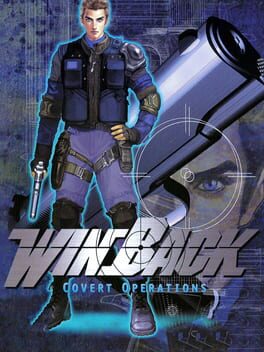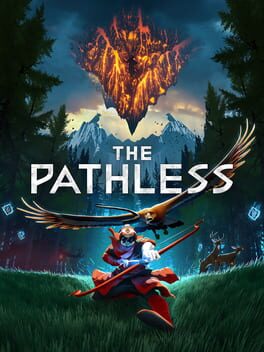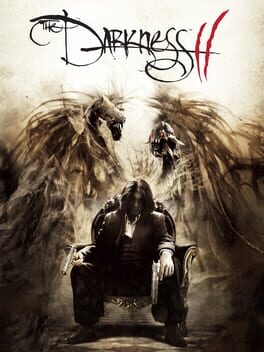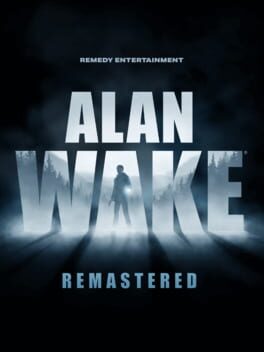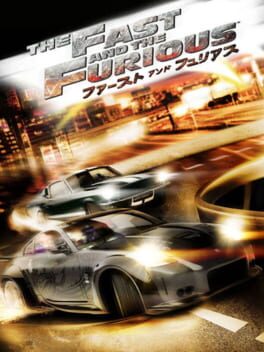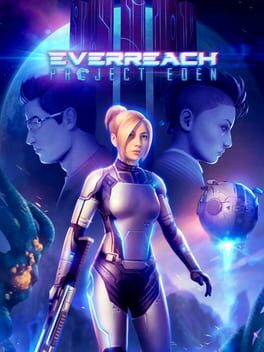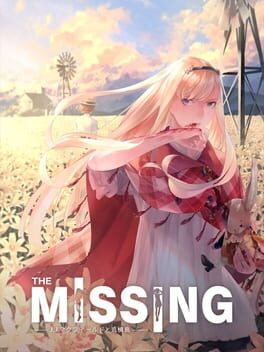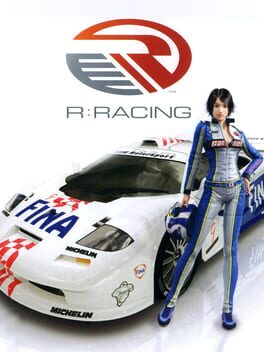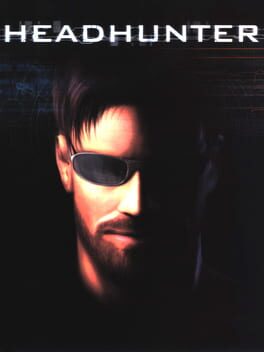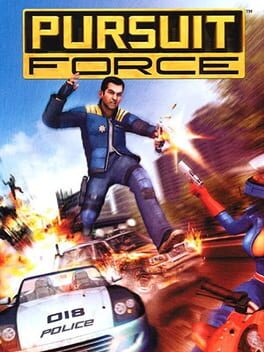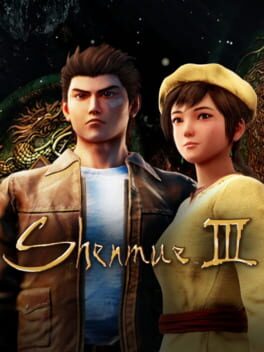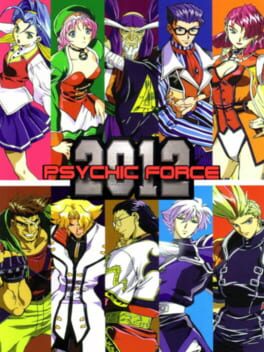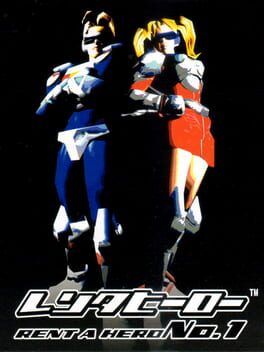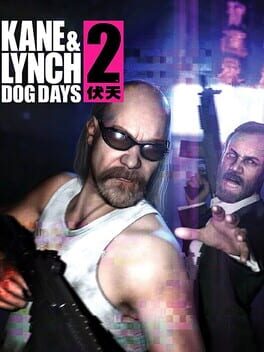bamdumtss
Ah yes, The Original Cover Shooter, the one that kickstarted it all. It's really interesting to play this myself, as to me, this felt closer to on-rail shooters like Time Crisis instead of modern cover shooters. There's a certain rhythm to its gameplay: finding cover, locking on to enemies, popping up from cover and gunning them down when it's safe to do so, and so on. This sounds like a typical cover shooter, but the way this game controls has that same kind of step-by-step process like how one would play a Time Crisis cabinet. Stomping on the pedal to take cover, waiting for the red enemies to finish their shot, and so on. This strategic routine is cemented by the fact that you don't just do things instantly, there's a short period before you actually finish your animations, which makes the game more about planning ahead rather than pure reflexes. It definitely takes a while to fully familiarize with the controls, but once it clicks, it's actually pretty fun.
Sadly there's just other aspects of the game that does not hold up at all. The level design is just straight up annoying most of the times, it really feels like you're just mindlessly looking for enemies to kill, and all the other objectives you do are only meaningless obstacles that gets in the way of getting into the next "new" location. I put new in quotations because there's a lot of backtracking here, and this adds to that feeling of not being in sync with what the game wants you to do, because its usually not clear why you're backtracking, but its the only way to progress.
It's a bummer, because the gameplay itself is genuinely fun and interesting, and I find the early 3D era story cutscenes to be charming. I just don't want to go through these dumb-ass levels, man.
Sadly there's just other aspects of the game that does not hold up at all. The level design is just straight up annoying most of the times, it really feels like you're just mindlessly looking for enemies to kill, and all the other objectives you do are only meaningless obstacles that gets in the way of getting into the next "new" location. I put new in quotations because there's a lot of backtracking here, and this adds to that feeling of not being in sync with what the game wants you to do, because its usually not clear why you're backtracking, but its the only way to progress.
It's a bummer, because the gameplay itself is genuinely fun and interesting, and I find the early 3D era story cutscenes to be charming. I just don't want to go through these dumb-ass levels, man.
2020
[Reposting and updating my review from another site for the archives. Originally posted in December 13, 2020]
This went above my high expectations. It started pretty slow, but as the world opens up more, and I begin to grasp the game's mechanics, at some point it just clicked. It's interesting enough that I felt compelled to get the platinum trophy, which is something that I rarely do these days, and I definitely loved it more because of all the side content that I did.
Let's start with the game's most unique element, the movement system. You basically need to shoot orbs that are scattered all over the map in order to boost yourself forward, and you have to keep shooting them in order to maintain the speed. If you shoot these orbs at the perfect time, you'll get a bigger boost. It's a delightful system that is a bit challenging to master, but it's worth it, as the sense of speed and style that the game exudes is a most satisfying reward.
The game's open world is filled with fun puzzles and interesting lore, mostly placed in well-designed points of interest. The puzzles are mainly based on figuring out where to shoot your bow at, and thinking about the arrow's trajectory, which is a three dimensional task that I had a lot of fun with. While you can make an educated guess of the main story if you just focus on the main content, piecing together the truth from all the lore texts is quite satisfying, and I like that many of them are not directly tied to the most important events, but rather divulge history that makes you care more about the game's world. There's a hint of fascination towards mysticism, spirituality and mythological beings, which reminds me of games like Fumito Ueda's trilogy.
Having a detective vision-esque ability in place of a traditional map for navigation is a cool idea, and it's well executed here, since exploring felt more natural and in-the-moment because of it. It's most useful only at certain times, like when you reach a high enough vantage point, and this is more than enough to discourage mindless usage of this ability.
Other than the exploration, the game's other main segments are the boss fights, which starts pretty decent with the first boss, but the later ones gets not only more epic in presentation (the soundtrack especially pops off), but also more engaging gameplay-wise. It's not the most complex boss fights, think of them as interconnected rhythm puzzle mini-games, but they're more than engaging enough. Not to mention, each boss fight ends in a touching manner, as you disarm the corruption that overwhelms these beasts, and be able to communicate with their true, best selves.
Overall, this was quite a surprise. I think the game could benefit from more types of puzzles and objectives, and I feel that more of the optional lore could be told in more ways than just text, but as it stands, it's still an incredible game. This is already one of my favorite open world games ever.
This went above my high expectations. It started pretty slow, but as the world opens up more, and I begin to grasp the game's mechanics, at some point it just clicked. It's interesting enough that I felt compelled to get the platinum trophy, which is something that I rarely do these days, and I definitely loved it more because of all the side content that I did.
Let's start with the game's most unique element, the movement system. You basically need to shoot orbs that are scattered all over the map in order to boost yourself forward, and you have to keep shooting them in order to maintain the speed. If you shoot these orbs at the perfect time, you'll get a bigger boost. It's a delightful system that is a bit challenging to master, but it's worth it, as the sense of speed and style that the game exudes is a most satisfying reward.
The game's open world is filled with fun puzzles and interesting lore, mostly placed in well-designed points of interest. The puzzles are mainly based on figuring out where to shoot your bow at, and thinking about the arrow's trajectory, which is a three dimensional task that I had a lot of fun with. While you can make an educated guess of the main story if you just focus on the main content, piecing together the truth from all the lore texts is quite satisfying, and I like that many of them are not directly tied to the most important events, but rather divulge history that makes you care more about the game's world. There's a hint of fascination towards mysticism, spirituality and mythological beings, which reminds me of games like Fumito Ueda's trilogy.
Having a detective vision-esque ability in place of a traditional map for navigation is a cool idea, and it's well executed here, since exploring felt more natural and in-the-moment because of it. It's most useful only at certain times, like when you reach a high enough vantage point, and this is more than enough to discourage mindless usage of this ability.
Other than the exploration, the game's other main segments are the boss fights, which starts pretty decent with the first boss, but the later ones gets not only more epic in presentation (the soundtrack especially pops off), but also more engaging gameplay-wise. It's not the most complex boss fights, think of them as interconnected rhythm puzzle mini-games, but they're more than engaging enough. Not to mention, each boss fight ends in a touching manner, as you disarm the corruption that overwhelms these beasts, and be able to communicate with their true, best selves.
Overall, this was quite a surprise. I think the game could benefit from more types of puzzles and objectives, and I feel that more of the optional lore could be told in more ways than just text, but as it stands, it's still an incredible game. This is already one of my favorite open world games ever.
2012
Every time I come back to these old games that I last played when I was much younger, I can't help but to temper my expectations, at least a little bit. Old memories has a habit of feeling stronger, or closer, than they actually are. TD2 is one of many games that I had fun with, but I was sure that, in the present, there's a lot of new flaws to be discovered, strong enough to overtake my memories. With a good amount of surprise and delight, I'm have to say that TD2 is still a good-ass game. In fact it's better than I remembered, in the most important ways.
First thing you'll notice is the dark, but vibrant cell shaded art style. Even on the PS3, the graphics are pretty nice to look at, despite the relatively low resolution textures and short draw distance for high LOD textures. I especially adore many of the skyboxes in the levels, it all feels like a well drawn comic book. The characters have slightly cartoonish animations that also fits the look, and thus, the game's overall presentation is quite strong.
There's obviously a lot of violence, dark supernatural elements, and other edgy comic tropes here, but for me, the story of TD2 is all about love. Jackie still grieves over the death of a loved one, despite years distancing the tragedy and his present. He is hopelessly haunted by her, and there are forces that will take advantage of this. It's hard to not be invested in his plight when the game has one of the most effective romantic scene I've seen in games in its first 2 hours, and the first person perspective only makes the intimacy of the story far more potent. The writing is quite solid, backed up with pretty good VO performances, and I like how well the game fleshed out Jackie's inner psyche. I don't exactly care for the Asylum sections that try to blur fact and fiction with embarrassing results, but that's pretty much the only thing that I didn't like.
Okay, that's all for the lovey dovey stuff. TD2 also features a hefty amount of bloody, gratifying first person combat, and it rules. You can carry 2 small arms (pistol & SMG) and 1 assault weapon (rifle and shotgun) with you at all times. You can even dual wield your small arms. But that's not all, since being the host of the Darkness gives you some pretty gnarly quirks. You can slash enemies up with your two snake-like tendrils, and they're quite strong. If you stun enemies you can grab and start an execution move on them, which grants you various effects like extra health or ammo. If you're the kind of guy who looks forward to every fatality you can get in Mortal Kombat, then the execution animations should turn you on as well. There's a bunch of unlockable powers, like being able to throw a black hole that sucks enemies in savagely, or unleashing a swarm of magical dust thingy that temporarily stuns a group of enemies. Killing enemies and eating their hearts will get you "essence" points that you need to unlock these powers.
The core combat mechanics are very solid, as it allows multiple ways of fighting, and rewards you for properly utilizing all your abilities to rip and tear everyone who stands against you. The type of enemies you encounter are varied enough to keep you at your toes, and the game constantly tries to test you by having properly placed light sources all over, which will weaken your powers. Not to mention the feedback for killing the enemies are just fundamentally gratifying, the gore effects are on point. The level design can be too cramped, linear and straightforward at times, but at the very least it helps the game keep a decently fast pace.
Lastly, I appreciate the collectible relics featuring extra lore that interwoves historical/mythological events with its own world of Darkness vs Light. Most of them are pretty fun reads, and there's one that foreshadows an important story event. I can tell that, as somebody who never read the comics or other Darkness media, there's a lot of world building here that the game at least tried to showcase a little.
It's sad that we probably won't see this getting a sequel, because the world of The Darkness is just quite perfect for video games, and this game is the proof of that. Lots of potential to build on that ending too. I guess I have another wish to make.
First thing you'll notice is the dark, but vibrant cell shaded art style. Even on the PS3, the graphics are pretty nice to look at, despite the relatively low resolution textures and short draw distance for high LOD textures. I especially adore many of the skyboxes in the levels, it all feels like a well drawn comic book. The characters have slightly cartoonish animations that also fits the look, and thus, the game's overall presentation is quite strong.
There's obviously a lot of violence, dark supernatural elements, and other edgy comic tropes here, but for me, the story of TD2 is all about love. Jackie still grieves over the death of a loved one, despite years distancing the tragedy and his present. He is hopelessly haunted by her, and there are forces that will take advantage of this. It's hard to not be invested in his plight when the game has one of the most effective romantic scene I've seen in games in its first 2 hours, and the first person perspective only makes the intimacy of the story far more potent. The writing is quite solid, backed up with pretty good VO performances, and I like how well the game fleshed out Jackie's inner psyche. I don't exactly care for the Asylum sections that try to blur fact and fiction with embarrassing results, but that's pretty much the only thing that I didn't like.
Okay, that's all for the lovey dovey stuff. TD2 also features a hefty amount of bloody, gratifying first person combat, and it rules. You can carry 2 small arms (pistol & SMG) and 1 assault weapon (rifle and shotgun) with you at all times. You can even dual wield your small arms. But that's not all, since being the host of the Darkness gives you some pretty gnarly quirks. You can slash enemies up with your two snake-like tendrils, and they're quite strong. If you stun enemies you can grab and start an execution move on them, which grants you various effects like extra health or ammo. If you're the kind of guy who looks forward to every fatality you can get in Mortal Kombat, then the execution animations should turn you on as well. There's a bunch of unlockable powers, like being able to throw a black hole that sucks enemies in savagely, or unleashing a swarm of magical dust thingy that temporarily stuns a group of enemies. Killing enemies and eating their hearts will get you "essence" points that you need to unlock these powers.
The core combat mechanics are very solid, as it allows multiple ways of fighting, and rewards you for properly utilizing all your abilities to rip and tear everyone who stands against you. The type of enemies you encounter are varied enough to keep you at your toes, and the game constantly tries to test you by having properly placed light sources all over, which will weaken your powers. Not to mention the feedback for killing the enemies are just fundamentally gratifying, the gore effects are on point. The level design can be too cramped, linear and straightforward at times, but at the very least it helps the game keep a decently fast pace.
Lastly, I appreciate the collectible relics featuring extra lore that interwoves historical/mythological events with its own world of Darkness vs Light. Most of them are pretty fun reads, and there's one that foreshadows an important story event. I can tell that, as somebody who never read the comics or other Darkness media, there's a lot of world building here that the game at least tried to showcase a little.
It's sad that we probably won't see this getting a sequel, because the world of The Darkness is just quite perfect for video games, and this game is the proof of that. Lots of potential to build on that ending too. I guess I have another wish to make.
2021
Alan Wake is quite the interesting beast. It has neat, well executed ideas that ultimately make it stand the test of time, even if it took a while for the game to truly become good.
The big theme of the story is being in the perspective of a writer, who is trapped in a story that seems to constantly spiral out of control, as it slowly turns into a horror story that will only benefit the darkness that desires it. It's a meta story that is very much self-aware of its weirdness. It takes a while to set up its main mysteries, but once it does, it becomes an engrossing and somewhat campy hero story. As one character describes, Wake's a bit heavy on the metaphors, and the entire game fits this belief like a glove, which speaks to how well it executes its ideas.
While the constant narration from Wake himself might be a turn off for people who likes to figure out the story on their own, I thought that his inner monologues made him more likeable, and also adds to the game's campy feel. It reminds me of The Velvet Underground's music video for After Hours, which had a charming and literal interpretation of the lyrics.
I also appreciate the details in its extra lore content, and how the game presents them. The manuscripts pretty much spoils near future events, and I find it to be a fresh and interesting take on meaningful side content. I savor the warm and cozy feel of the radio shows, and the silly Night Spring shows. You can tell that the people making the shows are having a blast making them.
The gameplay mostly involves using your flashlight to weaken enemies and blasting them to smithereens with conventional ballistic weapons, or using stronger light sources in the environment to get rid of them in a flash. The first three episodes (basically the game's chapters) were very one dimensional in terms of encounter and level design, you just keep running into the same kind of enemies and forced to deal with them in the same ways, and I almost wanted to quit the game because its such a slog. Thankfully it gets more interesting in every episode after that, especially in the post-main game special episodes. There's also tricky platforming puzzles and vehicular sections in larger areas that slightly helps the variety.
On Normal, it almost plays like a survival horror game. I thought the game is at its most fun when you're just trying your best to quickly get to the next checkpoint without killing every enemy, so naturally I had a lot of extra resources in hand. The game also takes away your resources quite frequently for story reasons, which is a bit annoying but it does lead to some interesting and challenging sections.
The combat itself is quite satisfying, with a highly fluid cinematic look to its presentation, and solid weapon feedback. It reminds me of older shooters like original RE4 and Timesplitters, where the gun and its reticule won't always be in the center of the screen, which in this case, adds to the cinematic feel. It's definitely held back by a lack of weapon variety, and somewhat uncreative encounter designs for a good portion of the journey.
It's not exactly a slam dunk bestseller, and yet Alan Wake still impresses. But the cloak over its true potential will soon be lifted, as Remedy sets the stage for its return. See you in October... fingers crossed.
The big theme of the story is being in the perspective of a writer, who is trapped in a story that seems to constantly spiral out of control, as it slowly turns into a horror story that will only benefit the darkness that desires it. It's a meta story that is very much self-aware of its weirdness. It takes a while to set up its main mysteries, but once it does, it becomes an engrossing and somewhat campy hero story. As one character describes, Wake's a bit heavy on the metaphors, and the entire game fits this belief like a glove, which speaks to how well it executes its ideas.
While the constant narration from Wake himself might be a turn off for people who likes to figure out the story on their own, I thought that his inner monologues made him more likeable, and also adds to the game's campy feel. It reminds me of The Velvet Underground's music video for After Hours, which had a charming and literal interpretation of the lyrics.
I also appreciate the details in its extra lore content, and how the game presents them. The manuscripts pretty much spoils near future events, and I find it to be a fresh and interesting take on meaningful side content. I savor the warm and cozy feel of the radio shows, and the silly Night Spring shows. You can tell that the people making the shows are having a blast making them.
The gameplay mostly involves using your flashlight to weaken enemies and blasting them to smithereens with conventional ballistic weapons, or using stronger light sources in the environment to get rid of them in a flash. The first three episodes (basically the game's chapters) were very one dimensional in terms of encounter and level design, you just keep running into the same kind of enemies and forced to deal with them in the same ways, and I almost wanted to quit the game because its such a slog. Thankfully it gets more interesting in every episode after that, especially in the post-main game special episodes. There's also tricky platforming puzzles and vehicular sections in larger areas that slightly helps the variety.
On Normal, it almost plays like a survival horror game. I thought the game is at its most fun when you're just trying your best to quickly get to the next checkpoint without killing every enemy, so naturally I had a lot of extra resources in hand. The game also takes away your resources quite frequently for story reasons, which is a bit annoying but it does lead to some interesting and challenging sections.
The combat itself is quite satisfying, with a highly fluid cinematic look to its presentation, and solid weapon feedback. It reminds me of older shooters like original RE4 and Timesplitters, where the gun and its reticule won't always be in the center of the screen, which in this case, adds to the cinematic feel. It's definitely held back by a lack of weapon variety, and somewhat uncreative encounter designs for a good portion of the journey.
It's not exactly a slam dunk bestseller, and yet Alan Wake still impresses. But the cloak over its true potential will soon be lifted, as Remedy sets the stage for its return. See you in October... fingers crossed.
The Fast and The Furious is definitely not a good game. The car physics and handling doesn't necessarily make sense when you think about your car's specifications, and I don't mean this in a fun arcade-y way, it just feels unwieldy and inaccurate. The main events are just the same kind of 1-2 minute races, and there's not much reason to explore the limited open world. But I was weirdly into it for a couple hours, I was basically gaslighting myself to think that I liked it. As a JDM enjoyer this game certainly scratched that itch, and there's some janky chaos to be had in the races, since the enemy AI are just as prone to hitting traffic and concrete as I am. It's too bad that it never really got better than that.
I accidentally bought this for like 7 bucks and I feel utterly embarrassed. Remind me to not touch any online store app when I have a fever. This is just Mass Effect at home, it's so amateurish and low budget to an almost charming degree. It reminds me of those scam MMOs, but without the malicious intent of scamming people, these devs just simply can't do any better with the resources they have. Skill issue, money issue, manpower issue, etc etc.
2019
Outer Wilds is one of those special games that will likely remain that way for a long time. It's not just about the technical feat of basically building a seamless miniature solar system that runs in real time, but also the amount of work, thought and talent being put into making it filled with interesting things to discover. All of the planets have their own unique challenges to deal with during exploration, and there's also deeper secrets to dig up, involving multiple events in the far past, which now only remains in echoes, ruins and decay.
The game starts in a very grounded way, as you're exploring your village and being allowed to get to know your friends and acquaintances, learn the background of your player character, and train your practical skills through well-disguised tutorials. It also plants the seeds of curiosity, as strange events occur, culminating with your first time loop. The game already throws so many hooks at you at this point, and no matter what, there should be at least one thing that makes you want to explore and learn everything the game has to offer.
Most of the game is about exploring the system, platforming all over the place, solving all the puzzles/obstacles you meet along the way. Each of the planets will present their own set of problems to solve, and it's quite often that you'll have to explore another planet in order to learn new info that will help you solve said problems. This is where the game truly shines, as the game is designed in such a way that rewards your curiosity with meaningful experience. Sometimes you have to progress the hard way, sometimes you just stumble on to the solution accidentally. But all of it will only happen if you're curious enough to explore and try to make something happen, and at some point you will make progress, and that's a satisfying feeling. Obviously not all of the planets are equal, and I definitely have my favorites, but overall it still hits a high bar of quality.
That leads into the puzzle design, and I have to say, it's quite incredible. It's not necessarily about being hard to figure out, but it's more so that they manage to make you feel very smart for figuring them out. I think a big part of that is because all of the game's systems are consistent and sensible, and their mechanisms are also communicated quite well, whether through text logs or simply the act of trial and error. They're also well integrated with each of the planet's environment design, and thus they never felt like elaborate artificial puzzles, but rather a real part of the planet that you'll have to tame. My favorite puzzles has got to be anything related to the in game quantum objects, especially the part where you get to learn their basic properties for the first time.
Another great part of the environment designs is the atmosphere. Dark caves feel suffocating and hostile. The vastness of black space gets more eerie the longer you allow your eyes to process it. Campfire with friends feel like the last pockets of safety and warmth. It truly makes the most out of its art style and soundtrack. I'm pretty sure I will have nightmares about Dark Brambles.
I would also like to highlight the UI, especially during ship flight. I simply adore the simplicity of it all, there's never a point where I am bombarded with info, and all of the info is being communicated in a elegant manner. I particularly like the planet lock-on UI, and the three dimensional vector thrust pointers.
It's not to say that I don't have any complaints. I never enjoyed having to avoid the ghost matter, I wish they would just design the levels differently instead of having this exist. Same goes for the fishes in Dark Brambles, both of these are just annoying difficulty spikes that isn't as interesting as the system's other threats (sand drowning, cactus spikes, general platforming/flight mistakes), although I do enjoy the story implications of the ghost matter. I also don't like exploring Dark Brambles (the aforementioned fishes, and the repetitive nature of it) and Giant's Deep (constantly being thrown into space gets pretty annoying, the last big puzzle isn't as satisfying as I hope) as much as the other locations.
There's a big overarching mystery that you'll slowly figure out along the way, and while I never truly got to latch onto any part of it in a personal or emotional manner, I do like a theme of it. I guess the continued pursuit of knowledge in the face of imminent end feels romantic to me. The knowledge is, most of all, for yourself. It's like holding to your loved ones, basking in their warmth, taking in their emotions. Your present is fulfilled with all the stimulus you desire, and the future shrinks to far less possibilities, even if it's only for a short time.
The game starts in a very grounded way, as you're exploring your village and being allowed to get to know your friends and acquaintances, learn the background of your player character, and train your practical skills through well-disguised tutorials. It also plants the seeds of curiosity, as strange events occur, culminating with your first time loop. The game already throws so many hooks at you at this point, and no matter what, there should be at least one thing that makes you want to explore and learn everything the game has to offer.
Most of the game is about exploring the system, platforming all over the place, solving all the puzzles/obstacles you meet along the way. Each of the planets will present their own set of problems to solve, and it's quite often that you'll have to explore another planet in order to learn new info that will help you solve said problems. This is where the game truly shines, as the game is designed in such a way that rewards your curiosity with meaningful experience. Sometimes you have to progress the hard way, sometimes you just stumble on to the solution accidentally. But all of it will only happen if you're curious enough to explore and try to make something happen, and at some point you will make progress, and that's a satisfying feeling. Obviously not all of the planets are equal, and I definitely have my favorites, but overall it still hits a high bar of quality.
That leads into the puzzle design, and I have to say, it's quite incredible. It's not necessarily about being hard to figure out, but it's more so that they manage to make you feel very smart for figuring them out. I think a big part of that is because all of the game's systems are consistent and sensible, and their mechanisms are also communicated quite well, whether through text logs or simply the act of trial and error. They're also well integrated with each of the planet's environment design, and thus they never felt like elaborate artificial puzzles, but rather a real part of the planet that you'll have to tame. My favorite puzzles has got to be anything related to the in game quantum objects, especially the part where you get to learn their basic properties for the first time.
Another great part of the environment designs is the atmosphere. Dark caves feel suffocating and hostile. The vastness of black space gets more eerie the longer you allow your eyes to process it. Campfire with friends feel like the last pockets of safety and warmth. It truly makes the most out of its art style and soundtrack. I'm pretty sure I will have nightmares about Dark Brambles.
I would also like to highlight the UI, especially during ship flight. I simply adore the simplicity of it all, there's never a point where I am bombarded with info, and all of the info is being communicated in a elegant manner. I particularly like the planet lock-on UI, and the three dimensional vector thrust pointers.
It's not to say that I don't have any complaints. I never enjoyed having to avoid the ghost matter, I wish they would just design the levels differently instead of having this exist. Same goes for the fishes in Dark Brambles, both of these are just annoying difficulty spikes that isn't as interesting as the system's other threats (sand drowning, cactus spikes, general platforming/flight mistakes), although I do enjoy the story implications of the ghost matter. I also don't like exploring Dark Brambles (the aforementioned fishes, and the repetitive nature of it) and Giant's Deep (constantly being thrown into space gets pretty annoying, the last big puzzle isn't as satisfying as I hope) as much as the other locations.
There's a big overarching mystery that you'll slowly figure out along the way, and while I never truly got to latch onto any part of it in a personal or emotional manner, I do like a theme of it. I guess the continued pursuit of knowledge in the face of imminent end feels romantic to me. The knowledge is, most of all, for yourself. It's like holding to your loved ones, basking in their warmth, taking in their emotions. Your present is fulfilled with all the stimulus you desire, and the future shrinks to far less possibilities, even if it's only for a short time.
The Missing handles its heavy story themes and touchy subjects quite well, successfully establishing a dark, surrealistic, dream-like atmosphere as the truth is slowly revealed. As you would expect from a Swery game, there's a strong tinge of dark humor, but not to its detriment. It's clear that Swery and his team doesn't take it lightly, and in a story like this, it's the very least one should expect, and they delivered more than that.
Gameplay-wise, it's a puzzle platformer with a sick twist, as extreme violence and self-harm is required in order to pass many of its obstacles. The puzzles themselves are pretty good overall, and there's good variety as each level has their own gimmick. But the game definitely requires some patience from the player's part, as many of the mechanics has a slow pace to it. You often have to wait for elements of the level to be at the right place, or just wait for certain animations to be finished before you can start moving. For example, waiting for an enemy to finish dismantling your body parts before you can move on. It might feel sluggish to some, especially when you're just looking around and trying to figure out what to do. Personally it didn't really bother me, I enjoyed the slow-ish pace. I also enjoy how the gameplay thematically ties to the larger picture of the story, it certainly adds to the game's unique personality.
Unfortunately, the game is not very stable. In my 5-6 hours playthrough, it froze 4 times, and 3 of them happened at very important story moments, actively hurting their emotional impact. At one point I was literally having goosebumps, and then the game froze and I just felt limp, the big moment was just snatched away from me like that. Because of this, I have to take the game down a few notches.
In short, The Missing is not exactly a breeze. Many people will be too troubled by at least one of its aspects, but you have to be patient with it. It's trying to tell you something important.
I still have some collectibles hunting to do, I want to see all the optional story stuff but I don't feel like going through the game again this soon. Will add a P.S. when that happens.
Gameplay-wise, it's a puzzle platformer with a sick twist, as extreme violence and self-harm is required in order to pass many of its obstacles. The puzzles themselves are pretty good overall, and there's good variety as each level has their own gimmick. But the game definitely requires some patience from the player's part, as many of the mechanics has a slow pace to it. You often have to wait for elements of the level to be at the right place, or just wait for certain animations to be finished before you can start moving. For example, waiting for an enemy to finish dismantling your body parts before you can move on. It might feel sluggish to some, especially when you're just looking around and trying to figure out what to do. Personally it didn't really bother me, I enjoyed the slow-ish pace. I also enjoy how the gameplay thematically ties to the larger picture of the story, it certainly adds to the game's unique personality.
Unfortunately, the game is not very stable. In my 5-6 hours playthrough, it froze 4 times, and 3 of them happened at very important story moments, actively hurting their emotional impact. At one point I was literally having goosebumps, and then the game froze and I just felt limp, the big moment was just snatched away from me like that. Because of this, I have to take the game down a few notches.
In short, The Missing is not exactly a breeze. Many people will be too troubled by at least one of its aspects, but you have to be patient with it. It's trying to tell you something important.
I still have some collectibles hunting to do, I want to see all the optional story stuff but I don't feel like going through the game again this soon. Will add a P.S. when that happens.
2003
This game has so much potential. They did a good job with the Ace Combat-esque in-game commentary and rival dialogues, and the premise of the main campaign is solid enough. The game just misses pretty much almost every important aspect of a good racing game, and a good story campaign.
The car physics feel so slippery no matter what car you're driving, and the collision system barely have any meaningful audiovisual impact. It's like driving a tofu on a wet surface. It's just not very fun to drive any car in this game.
The main story campaign is incredibly barebones in terms of actual story content. None of the characters are actually given chances to be actual characters instead of just a draft idea. It feels so impersonal, as if you're just watching the cliffnotes version of the story. It's like they're doing this on a shoestring budget. Ridge Racer Type 4, this is not.
The soundtrack is great, its definitely worthy of being a Ridge Racer game soundtrack. I also like the visual style of the menus and UI and such. A lot of the track environments look great too, especially the non-circuit tracks. That's all the positive feedback I can give for this game.
The car physics feel so slippery no matter what car you're driving, and the collision system barely have any meaningful audiovisual impact. It's like driving a tofu on a wet surface. It's just not very fun to drive any car in this game.
The main story campaign is incredibly barebones in terms of actual story content. None of the characters are actually given chances to be actual characters instead of just a draft idea. It feels so impersonal, as if you're just watching the cliffnotes version of the story. It's like they're doing this on a shoestring budget. Ridge Racer Type 4, this is not.
The soundtrack is great, its definitely worthy of being a Ridge Racer game soundtrack. I also like the visual style of the menus and UI and such. A lot of the track environments look great too, especially the non-circuit tracks. That's all the positive feedback I can give for this game.
2001
Headhunter is one of those games that actually pissed me off enough to make me want to quit in the middle of it; in fact remember it quite clearly, it was while I kept hitting random shit with my motorcycle as a timer was counting down. I almost did it, I almost turned the game off forcibly and just called it a day. The rare thing is that I decided to just hold that anger back and continue with the game. I have to say that I glad I did.
If I want to be really reductive, I would just say that this game is Metal Gear Solid - at home. The story aims for a similar kind of political conspiracy, but in a zany funky way that's closer to Hollywood of its era. It has dialogues presented in a codec-esque manner, but with only a fraction of the runtime, and nowhere near as iconic. There's even enemies cosplaying as genome soldiers later on. There's a lot more to say about this, but you get the point already.
From very early on, you can already see weird angle that the story is going for. Apparently the world is pretty obsessed with preserving human organs, but this obviously can't happen if we keep having ballistic weapons, so there's a new neurological-based weapons now that disable the human nervous system instead. This, and many other odd ideas are presented in the satirically straightforward way of live action actors performing in-world TV news broadcasts, keeping their best smiles and scripted jokes for the whole world to see. The world itself is already interesting enough, but the presentation takes it up a notch.
The plot itself only gets truly good later on, and the writing is pretty okay. The main two characters have a tolerable chemistry, and the villains are quite silly, so that's good enough for me, haha.
Gameplay wise, it's pretty much a third person shooter with light puzzle-exploration elements, which involves searching for objects in the environment to open locked areas. There's apparently a stealth system since the game's challenges teach you it, but honestly its non-existent, even when the story seems to head into the direction of requiring it. It's a good thing though, because the stealth challenges are incredi-bad. I got used to the shooting controls pretty quick, and had a decent time with it. Even the enemy AI seems to be pretty okay, in terms of not being pushovers.
I did not, however, have fun with the motorcycle controls. In between missions you are required to drive around the city to get to new places, and in order to progress, you need to earn enough skill points by riding really fast without colliding with things. The controls themselves are just dumb, I don't get why your character have to lift the motorcycle up each time you rev the thing up, it messes with your trajectory and it always makes it feel like I'm on a rebellious stallion that wants to kill me. The collision system can also really frustrate at times, it's not consistent in how it registers hits and how much it impacts your speed. There's not too many motorcycle sections, but there's one big story section that really tests your patience (the aforementioned timer based section), and I can't quite shake the psychic damage it did on me.
In the first half the game kinda tried to show its influences in a subtler way, but the second half just went crazy with it, and it's for the better. The second half had more interesting level design, and the story is at its most fun moments too. There's even a very noticable Resident Evil vibe to the last level.
There's also boss fights but I think most of them are just okay, it's definitely very MGS-esque in terms of how it feels to play them. The final boss fight is pretty great though. And the music is good, I like the epic feel of the main motif. Also, this game has some of the funniest game overs I've seen in a while, sometimes the game over screen will just immediately cut the sound of your character's death yelp, and it's pretty entertaining.
Despite an earnest attempt, Headhunter never quite reaches the heights of its influences for even a second, even if there's some potential here. But if you're okay with that, and willing to be patient with the game's mechanics, you'll probably get a kick out of this.
If I want to be really reductive, I would just say that this game is Metal Gear Solid - at home. The story aims for a similar kind of political conspiracy, but in a zany funky way that's closer to Hollywood of its era. It has dialogues presented in a codec-esque manner, but with only a fraction of the runtime, and nowhere near as iconic. There's even enemies cosplaying as genome soldiers later on. There's a lot more to say about this, but you get the point already.
From very early on, you can already see weird angle that the story is going for. Apparently the world is pretty obsessed with preserving human organs, but this obviously can't happen if we keep having ballistic weapons, so there's a new neurological-based weapons now that disable the human nervous system instead. This, and many other odd ideas are presented in the satirically straightforward way of live action actors performing in-world TV news broadcasts, keeping their best smiles and scripted jokes for the whole world to see. The world itself is already interesting enough, but the presentation takes it up a notch.
The plot itself only gets truly good later on, and the writing is pretty okay. The main two characters have a tolerable chemistry, and the villains are quite silly, so that's good enough for me, haha.
Gameplay wise, it's pretty much a third person shooter with light puzzle-exploration elements, which involves searching for objects in the environment to open locked areas. There's apparently a stealth system since the game's challenges teach you it, but honestly its non-existent, even when the story seems to head into the direction of requiring it. It's a good thing though, because the stealth challenges are incredi-bad. I got used to the shooting controls pretty quick, and had a decent time with it. Even the enemy AI seems to be pretty okay, in terms of not being pushovers.
I did not, however, have fun with the motorcycle controls. In between missions you are required to drive around the city to get to new places, and in order to progress, you need to earn enough skill points by riding really fast without colliding with things. The controls themselves are just dumb, I don't get why your character have to lift the motorcycle up each time you rev the thing up, it messes with your trajectory and it always makes it feel like I'm on a rebellious stallion that wants to kill me. The collision system can also really frustrate at times, it's not consistent in how it registers hits and how much it impacts your speed. There's not too many motorcycle sections, but there's one big story section that really tests your patience (the aforementioned timer based section), and I can't quite shake the psychic damage it did on me.
In the first half the game kinda tried to show its influences in a subtler way, but the second half just went crazy with it, and it's for the better. The second half had more interesting level design, and the story is at its most fun moments too. There's even a very noticable Resident Evil vibe to the last level.
There's also boss fights but I think most of them are just okay, it's definitely very MGS-esque in terms of how it feels to play them. The final boss fight is pretty great though. And the music is good, I like the epic feel of the main motif. Also, this game has some of the funniest game overs I've seen in a while, sometimes the game over screen will just immediately cut the sound of your character's death yelp, and it's pretty entertaining.
Despite an earnest attempt, Headhunter never quite reaches the heights of its influences for even a second, even if there's some potential here. But if you're okay with that, and willing to be patient with the game's mechanics, you'll probably get a kick out of this.
2005
Pursuit Force is basically if they made an entire game out of those Hollywood blockbuster car chase scenes, and it turns out to be a pretty fun game, with some annoyances holding it back.
In the main campaign mode you'll be taking on 5 gangs, each representing the biggest threats to civilized society: the mob, military LARPers, loose convicts, karens, and the yakuza. In case you didn't notice, this is a very dumb game, but in a fun way. You'll be mostly killing a bunch of them bad dudes while on a high speed vehicle, set on a linear pathway of roads. It's mostly about completing the objectives while surviving against the onslaught of gunfire. If your vehicles gets too damaged, you can hop on an enemy vehicle, take them down and get on the driver's seat to continue the mission. There's also non-vehicle sections like on-foot third person shooting, or the helicopter turret sections, which are decent enough to make the missions feel more dynamic. At its best, the game's missions are bite-sized helpings of over-the-top adrenaline rush.
The game definitely gets more hectic as you progress, although the difficulty progression is not necessarily linear. Enemies in the later missions can jump on your vehicles and go right for your jugular, and this can be pretty annoying since there's usually not enough room on the roads to swerve around and throw them off. It also gets harder to manage your health, since the quickest way to get health is by filling up a bar by doing enough enemy takedowns and such, and you can lose points on said bar by hitting or hurting civilian vehicles. It can be very hard when there's like 2-3 other enemy vehicles hitting you into the civilians. Not to mention there's no checkpoint system here, even for the longer missions. It's not exactly insurmountable odds, but it does feel hella frustrating sometimes.
There's also 2 boss fights for each gang, and I can't say that these are as exciting as they should be. I think the best one is the final mob boss fight, which is one of the earliest boss fight you can do. The boss fights don't exactly ramp up in an interesting way, they usually just have more annoying elements to them, like having a lot of adds tailing them. This doesn't mean that they're no fun, but I do think it could have been done much better.
There isn't really a story here, it's just about you taking down a bunch of gangs without an overarching plot. I do feel annoyed that most of the game's dialogues are just people shit talking you, even from your own boss. Some of the gangs also have questionable accents, which at the very least is a bit distracting.
That's basically it for the main campaign. There's also race and time trial modes, which are just fine. The port/emulation job for the PS5 version is pretty nice, the up-res graphics looks good and the rewind feature is very helpful. I also got the platinum trophy in just about 6 hours. I had a good time with this, and I would love to see Sony bring more of their old forgotten franchises back.
In the main campaign mode you'll be taking on 5 gangs, each representing the biggest threats to civilized society: the mob, military LARPers, loose convicts, karens, and the yakuza. In case you didn't notice, this is a very dumb game, but in a fun way. You'll be mostly killing a bunch of them bad dudes while on a high speed vehicle, set on a linear pathway of roads. It's mostly about completing the objectives while surviving against the onslaught of gunfire. If your vehicles gets too damaged, you can hop on an enemy vehicle, take them down and get on the driver's seat to continue the mission. There's also non-vehicle sections like on-foot third person shooting, or the helicopter turret sections, which are decent enough to make the missions feel more dynamic. At its best, the game's missions are bite-sized helpings of over-the-top adrenaline rush.
The game definitely gets more hectic as you progress, although the difficulty progression is not necessarily linear. Enemies in the later missions can jump on your vehicles and go right for your jugular, and this can be pretty annoying since there's usually not enough room on the roads to swerve around and throw them off. It also gets harder to manage your health, since the quickest way to get health is by filling up a bar by doing enough enemy takedowns and such, and you can lose points on said bar by hitting or hurting civilian vehicles. It can be very hard when there's like 2-3 other enemy vehicles hitting you into the civilians. Not to mention there's no checkpoint system here, even for the longer missions. It's not exactly insurmountable odds, but it does feel hella frustrating sometimes.
There's also 2 boss fights for each gang, and I can't say that these are as exciting as they should be. I think the best one is the final mob boss fight, which is one of the earliest boss fight you can do. The boss fights don't exactly ramp up in an interesting way, they usually just have more annoying elements to them, like having a lot of adds tailing them. This doesn't mean that they're no fun, but I do think it could have been done much better.
There isn't really a story here, it's just about you taking down a bunch of gangs without an overarching plot. I do feel annoyed that most of the game's dialogues are just people shit talking you, even from your own boss. Some of the gangs also have questionable accents, which at the very least is a bit distracting.
That's basically it for the main campaign. There's also race and time trial modes, which are just fine. The port/emulation job for the PS5 version is pretty nice, the up-res graphics looks good and the rewind feature is very helpful. I also got the platinum trophy in just about 6 hours. I had a good time with this, and I would love to see Sony bring more of their old forgotten franchises back.
2019
Bruh I can't take this game anymore. There's hints of the original Shenmue spirit here but it's utterly twisted by a lack of honesty in its core component. You can tell this story in a better way if you just make a smaller, shorter game. Why delude yourself into thinking that you're an epic? I never seen a game try to pad its length out as hard as this, and I am not even the kind of person who slowly dies inside anytime a piece of entertainment media meanders in its pacing and such. Everything in the game is designed to be make the game longer, and there's barely enough rewarding moments to make it worthwhile. Having to train by learning new moves and improving your stamina is a nice idea, but the constantly meaningless prolongement of the main story is nowhere near good enough to justify the effort and time being put into said training. Not to mention the combat feels pretty unsatisfying by itself, it feels more like watching a bunch of hollow doll puppets flinging their appendages around. They did nail the nostalgic Dreamcast vibes through the environment visuals, the music is as good as always, and I like that you can call characters from the previous games and just chat for a bit. Still, as a massive enjoyer of the first two Shenmues (Shenmue 1 is very high on my list of favorite games), I can't help but be a little sad right now.
1998
Well, this was a quite a pleasant surprise. This basically answers the question of "what if Dragon Ball characters had far less muscle power and had to mostly fight with elaborate energy blasts?" The answer turns out to be pretty solid and unique fighting game.
Okay, saying they're just energy blasts is slightly underselling it. You'll be fighting in a cubical arena far above ground, being able to fly around in both X and Y axis. Your basic moves are a light attack, strong attack, charging your psychic meter, guard/block, and dash. At long range, each attack button will execute a ranged attack, but at close range you'll do melee instead. You can also grab them. Most attacks will drain your psychic meter, which can be recharged but will leave an opening for your enemy. Your psychic meter also gets bigger as your health gets lower, which means you can be more aggressive, although with greater risk. You can bounce enemies towards the level's borders and "freeze" them for a very short period, which seems to be the main way to unleash a longer string of attacks.
There seems to be a bunch more universal advanced moves but I'll be honest, I'm a very casual fighting game enjoyer, I read the manual and I didn't understand the advanced stuff lol. Either way, I had quite a blast with the knowledge I had gained so far, and was able to go through the story modes for all 10 characters with relative ease at the "default" difficulty level (apparently it's Easy? There's 8 levels). Obviously it depends on your chosen character's play style, but the fundamentals of keeping your distance, punishing missed attacks and minding your psychic meter seems to be the most basic skills to have. It results in a slower paced, tactical fighting gameplay that I really enjoy.
As I hinted before, there's 10 available characters at the start. In terms of gameplay, I particularly enjoy Setsuna (great variety of hard hitting attacks, especially the one that unleashes arrows in a wide spread), Carlo (I really like the Aqua Javelin move, which can bounce your enemy towards you for an intimate ass-kicking), and Might (seems like the most noob-friendly character). Maybe the only one that I actively hate using is Patty, her trap-placing (?) moves didn't click with me at all.
I find the Story Mode to be quite satisfying. It's the traditional individual-story-arc-each-character structure, and I liked the overall setup of the game's world. It's very much in the vein of a 90s anime: two warring factions, one of them far shadier than the other. It's a story where nobody seems to have a fully happy ending, and it always leaves a trail of dead bodies. I particularly enjoy Emilio and Wendy's story arc, which features my two favorite character endings so far. I also enjoyed Setsuna's drunk-with-power story quite a bit, mostly because of how unhinged he is.
Other than that, there's pretty bangin' soundtrack to look forward to. I also love the 90s anime visual style, the engine they used seems to be perfect for the job, and the character designs and portraits are beautiful. I can't exactly say the same for the level backgrounds, they're just okay and could have been better.
As it stands, PF2012 is a cool-as-heck fighting game. It might not be the most competitive fighting game, but nobody can claim that it's not unique. I look forward to unlocking the secret characters hopefully pretty soon.
Okay, saying they're just energy blasts is slightly underselling it. You'll be fighting in a cubical arena far above ground, being able to fly around in both X and Y axis. Your basic moves are a light attack, strong attack, charging your psychic meter, guard/block, and dash. At long range, each attack button will execute a ranged attack, but at close range you'll do melee instead. You can also grab them. Most attacks will drain your psychic meter, which can be recharged but will leave an opening for your enemy. Your psychic meter also gets bigger as your health gets lower, which means you can be more aggressive, although with greater risk. You can bounce enemies towards the level's borders and "freeze" them for a very short period, which seems to be the main way to unleash a longer string of attacks.
There seems to be a bunch more universal advanced moves but I'll be honest, I'm a very casual fighting game enjoyer, I read the manual and I didn't understand the advanced stuff lol. Either way, I had quite a blast with the knowledge I had gained so far, and was able to go through the story modes for all 10 characters with relative ease at the "default" difficulty level (apparently it's Easy? There's 8 levels). Obviously it depends on your chosen character's play style, but the fundamentals of keeping your distance, punishing missed attacks and minding your psychic meter seems to be the most basic skills to have. It results in a slower paced, tactical fighting gameplay that I really enjoy.
As I hinted before, there's 10 available characters at the start. In terms of gameplay, I particularly enjoy Setsuna (great variety of hard hitting attacks, especially the one that unleashes arrows in a wide spread), Carlo (I really like the Aqua Javelin move, which can bounce your enemy towards you for an intimate ass-kicking), and Might (seems like the most noob-friendly character). Maybe the only one that I actively hate using is Patty, her trap-placing (?) moves didn't click with me at all.
I find the Story Mode to be quite satisfying. It's the traditional individual-story-arc-each-character structure, and I liked the overall setup of the game's world. It's very much in the vein of a 90s anime: two warring factions, one of them far shadier than the other. It's a story where nobody seems to have a fully happy ending, and it always leaves a trail of dead bodies. I particularly enjoy Emilio and Wendy's story arc, which features my two favorite character endings so far. I also enjoyed Setsuna's drunk-with-power story quite a bit, mostly because of how unhinged he is.
Other than that, there's pretty bangin' soundtrack to look forward to. I also love the 90s anime visual style, the engine they used seems to be perfect for the job, and the character designs and portraits are beautiful. I can't exactly say the same for the level backgrounds, they're just okay and could have been better.
As it stands, PF2012 is a cool-as-heck fighting game. It might not be the most competitive fighting game, but nobody can claim that it's not unique. I look forward to unlocking the secret characters hopefully pretty soon.
2000
First off, big thanks to VincentNL and the rent-a-modders for the english translation patch! Wouldn't have been able to play this without their hard work.
Now onto the game itself... I absolutely adore it! It's a very entertaining Shenmue-like superhero beat em up adventure game, with tons of heart and soul in its comedic action writing, and top tier Dreamcast-era cozy vibes.
The game sets the tone very well, with a housewarming party that immediately introduces the quality of its writing, and the level of whimsyness you'll encounter throughout the game. Not to mention the wonderfully fitting opening music video, nailing the vibes of a lighthearted Tokusatsu romp. Also, how fun is it that the device you're using to keep tabs of your hero-for-hire work is called a Creamcast?
After that it slows down a bit, as it introduces you to all the areas you can explore one by one, and the general mechanisms of completing objectives in the game. It's a nice tutorial period that mimics the experience of exploring a new city that you've moved in. You'll quickly notice that although you can't move around your camera freely, you don't have tank controls like in Shenmue, which makes the movement feel quite natural. You should also notice the catchy track that plays when you're in the middle of your requests.
There's an economy system here, where you can get cash from completing requests, and you need it to stock up batteries for your superhero suit, buy food for your health points, pay rental fees for the suit, and also for suit upgrades. You'll lose half of the cash you have on you whenever you're beaten, so it pushes you to regularly visit the bank to deposit your money. It's not exactly a challenge to manage this as long as you don't overspend on items and such, but it's a nice feature that further grounds you into the game's world.
The variety of the requests is quite strong, as its not just a bunch of rowdy baddies you have to deal with. Being asked to help find somebody, shopping duties, solving family issues, bodyguarding, and so on. Most of it is quite simple in execution, you usually just have to figure out where to go and what to interact with, but a lot of these missions require a knowledge of the city's various services. For example, knowing where to buy groceries. This obviously rewards the player for taking the time to explore and paying attention to things.
When push comes to shove, it's time to beat em' up. It's a pretty straightforward combat system, if you played any old school beat em' up games then you should be quickly familiar with this. Aside from the usual fundamentals of knowing when to attack and keep your distance, there's combos that you can unlock by practicing against Segata Sanshiro in the college gymnasium, and special powers you can buy from your employers' basement hideout. Although not being able to control your camera can lead into surprise attacks by off screen enemies, I find this to be a quirk that I have gotten used to relatively quickly, so it's not exactly a big issue. I say that the combat is more than fun enough for this game, even if the last few missions have too many forced battle encounters. Being able to avoid random enemy encounters completely by staying in your regular human form is an appreciated feature.
In my view, a big design theme of this game is not overcomplicating itself. A lot of the game's mechanics, objectives and mannerisms aren't that deep, but they don't need to be. If you keep talking to people and paying attention to what they say, you can figure things out on your own quite easily, and it still feels very satisfying. The combat isn't particularly complex, but in turn it asks you to always be careful because enemies can damage you quite heavily if you let them. It's a philosophy that I very much resonate with.
Rent-a-Hero is easily my favorite Shenmue-like game. It overtakes its influence in many aspects, and I just can't help but smile at the games' silly characters and scenarios. It's a comical, but genuine portrayal of how strong people can positively impact their surroundings.
Now onto the game itself... I absolutely adore it! It's a very entertaining Shenmue-like superhero beat em up adventure game, with tons of heart and soul in its comedic action writing, and top tier Dreamcast-era cozy vibes.
The game sets the tone very well, with a housewarming party that immediately introduces the quality of its writing, and the level of whimsyness you'll encounter throughout the game. Not to mention the wonderfully fitting opening music video, nailing the vibes of a lighthearted Tokusatsu romp. Also, how fun is it that the device you're using to keep tabs of your hero-for-hire work is called a Creamcast?
After that it slows down a bit, as it introduces you to all the areas you can explore one by one, and the general mechanisms of completing objectives in the game. It's a nice tutorial period that mimics the experience of exploring a new city that you've moved in. You'll quickly notice that although you can't move around your camera freely, you don't have tank controls like in Shenmue, which makes the movement feel quite natural. You should also notice the catchy track that plays when you're in the middle of your requests.
There's an economy system here, where you can get cash from completing requests, and you need it to stock up batteries for your superhero suit, buy food for your health points, pay rental fees for the suit, and also for suit upgrades. You'll lose half of the cash you have on you whenever you're beaten, so it pushes you to regularly visit the bank to deposit your money. It's not exactly a challenge to manage this as long as you don't overspend on items and such, but it's a nice feature that further grounds you into the game's world.
The variety of the requests is quite strong, as its not just a bunch of rowdy baddies you have to deal with. Being asked to help find somebody, shopping duties, solving family issues, bodyguarding, and so on. Most of it is quite simple in execution, you usually just have to figure out where to go and what to interact with, but a lot of these missions require a knowledge of the city's various services. For example, knowing where to buy groceries. This obviously rewards the player for taking the time to explore and paying attention to things.
When push comes to shove, it's time to beat em' up. It's a pretty straightforward combat system, if you played any old school beat em' up games then you should be quickly familiar with this. Aside from the usual fundamentals of knowing when to attack and keep your distance, there's combos that you can unlock by practicing against Segata Sanshiro in the college gymnasium, and special powers you can buy from your employers' basement hideout. Although not being able to control your camera can lead into surprise attacks by off screen enemies, I find this to be a quirk that I have gotten used to relatively quickly, so it's not exactly a big issue. I say that the combat is more than fun enough for this game, even if the last few missions have too many forced battle encounters. Being able to avoid random enemy encounters completely by staying in your regular human form is an appreciated feature.
In my view, a big design theme of this game is not overcomplicating itself. A lot of the game's mechanics, objectives and mannerisms aren't that deep, but they don't need to be. If you keep talking to people and paying attention to what they say, you can figure things out on your own quite easily, and it still feels very satisfying. The combat isn't particularly complex, but in turn it asks you to always be careful because enemies can damage you quite heavily if you let them. It's a philosophy that I very much resonate with.
Rent-a-Hero is easily my favorite Shenmue-like game. It overtakes its influence in many aspects, and I just can't help but smile at the games' silly characters and scenarios. It's a comical, but genuine portrayal of how strong people can positively impact their surroundings.
Recently I have started dabbling into photography using an old point and shoot digicam. Obviously taking pictures with high fidelity modern cameras feel great, but there's something about the images being captured by my obsolete tool that appeal to me. The visibly higher amount of grain, somewhat inaccurate colors, the general lack of sharpness, and so on. I don't use these for capturing life as it is, but instead, to obtain an different kind of view, something my eyes will never hope to produce on its own non-pathologic mechanism. It's a grimy, but electrifying aesthetic that leaves some room to the imagination, even in its most photorealistic form.
In comes Dog Days, an unhinged, raw and violent shooter that tries to take advantage of said digicam mannerisms to heighten its artistic value. Outside of the one time the game acknowledges it, an invisible cameraman follows our titular characters as they unknowingly start a war against a corrupt politician, putting everyone who stands between the guns-for-hire and these scumbag protagonists in danger. The lo-fi camera will only make things seem much more chaotic, as it constantly pixelates and glitches in reaction to your movements and actions, and heavily shake when you're running. At one point it seems like the video bitrate can't handle all the scattered particles and glasses shattering, which is highly entertaining for me. I also love how the camera falls to the floor when you die in gameplay, the overexposure of the sky in daylight, the mozaic censorship of enemy heads when you get a close headshot, and the icons on the UI that seem to emulate the style of a video player. It's an art style that is absolutely not for everybody, I know a lot of people would be uncomfortable with it, whether its due to motion sickness, epilepsy tendencies, or just being too violent (almost like a snuff film at a certain short period), but it's an incredibly engaging take on portraying realism.
Gameplay wise, it's a pretty average but enjoyable third person cover shooter. If you played one of these from the PS3-360 era then you'll be very familiar with this. There's basically three tiers of enemies: gang members, police, and military forces. At first you'll be mostly seeing gang members, which is the least enjoyable point of the gunplay since the guns you get from their dead bodies are mostly inaccurate peashooter, but higher tiers will have better guns, and once you get to use them, it starts to become a decent experience. There's decent weapon variety, although the enemy variety is basically non-existent in terms of their mechanics. There's some extra mechanics like being able to throw explosive objects or holding an enemy as a human shield, but these are mostly situational actions that isn't necessary to exploit.
The enemy AI is nothing too special, but I do like how aggressive they are. It always seems like they know that they have the numbers advantage, and will keep pressing on if you stay in one place for too long. Not to mention there's a lot of destrutible covers around, which makes for a faster pace of gunplay. I just wish that the level design takes more advantage of it, there's a lot of arenas with empty spaces (especially in the middle act) that makes your viable options of attack feel very limited. Also, shoutout to the companion AI, they're actually pretty helpful at saving my ass many times.
What I like most of Dog Days, other than the art style, is how it presents the story. Plot points and character moments happen in a quick manner, as if it's edited by somebody who only wants to show the "good parts". It doesn't make for a great story, but it does feel like it's targeted to somebody who isn't playing this for the story. It's as if we're just curious people who stumbled upon this mysterious violent video of two dudes mowing down hundreds of people, getting brutally tortured in the middle, and keep fucking up everything they touch. It all leads into this feeling of playing something you shouldn't play; an illegal act.
Something I wished Dog Days did more of is having levels set in the actual streets where you can see all the beautiful neon lights and crowds of people in. Maybe a prestige game would nail this, but this game ain't one of those sadly. With this art style, it would just be a one heck of an audiovisual experience. A lot of the levels are set in monotone industrial locations like the docks and a train railyard that aren't exactly pleasing to be in in the first place.
At times, Dog Days can feel rushed and not well-done enough, but many of its qualities are still unique even today, and thus it dodges the all too common fate of being a title that isn't worth remembering. Like how one character describes Shanghai, It's a shit hole. But it's perfect for freaks.
In comes Dog Days, an unhinged, raw and violent shooter that tries to take advantage of said digicam mannerisms to heighten its artistic value. Outside of the one time the game acknowledges it, an invisible cameraman follows our titular characters as they unknowingly start a war against a corrupt politician, putting everyone who stands between the guns-for-hire and these scumbag protagonists in danger. The lo-fi camera will only make things seem much more chaotic, as it constantly pixelates and glitches in reaction to your movements and actions, and heavily shake when you're running. At one point it seems like the video bitrate can't handle all the scattered particles and glasses shattering, which is highly entertaining for me. I also love how the camera falls to the floor when you die in gameplay, the overexposure of the sky in daylight, the mozaic censorship of enemy heads when you get a close headshot, and the icons on the UI that seem to emulate the style of a video player. It's an art style that is absolutely not for everybody, I know a lot of people would be uncomfortable with it, whether its due to motion sickness, epilepsy tendencies, or just being too violent (almost like a snuff film at a certain short period), but it's an incredibly engaging take on portraying realism.
Gameplay wise, it's a pretty average but enjoyable third person cover shooter. If you played one of these from the PS3-360 era then you'll be very familiar with this. There's basically three tiers of enemies: gang members, police, and military forces. At first you'll be mostly seeing gang members, which is the least enjoyable point of the gunplay since the guns you get from their dead bodies are mostly inaccurate peashooter, but higher tiers will have better guns, and once you get to use them, it starts to become a decent experience. There's decent weapon variety, although the enemy variety is basically non-existent in terms of their mechanics. There's some extra mechanics like being able to throw explosive objects or holding an enemy as a human shield, but these are mostly situational actions that isn't necessary to exploit.
The enemy AI is nothing too special, but I do like how aggressive they are. It always seems like they know that they have the numbers advantage, and will keep pressing on if you stay in one place for too long. Not to mention there's a lot of destrutible covers around, which makes for a faster pace of gunplay. I just wish that the level design takes more advantage of it, there's a lot of arenas with empty spaces (especially in the middle act) that makes your viable options of attack feel very limited. Also, shoutout to the companion AI, they're actually pretty helpful at saving my ass many times.
What I like most of Dog Days, other than the art style, is how it presents the story. Plot points and character moments happen in a quick manner, as if it's edited by somebody who only wants to show the "good parts". It doesn't make for a great story, but it does feel like it's targeted to somebody who isn't playing this for the story. It's as if we're just curious people who stumbled upon this mysterious violent video of two dudes mowing down hundreds of people, getting brutally tortured in the middle, and keep fucking up everything they touch. It all leads into this feeling of playing something you shouldn't play; an illegal act.
Something I wished Dog Days did more of is having levels set in the actual streets where you can see all the beautiful neon lights and crowds of people in. Maybe a prestige game would nail this, but this game ain't one of those sadly. With this art style, it would just be a one heck of an audiovisual experience. A lot of the levels are set in monotone industrial locations like the docks and a train railyard that aren't exactly pleasing to be in in the first place.
At times, Dog Days can feel rushed and not well-done enough, but many of its qualities are still unique even today, and thus it dodges the all too common fate of being a title that isn't worth remembering. Like how one character describes Shanghai, It's a shit hole. But it's perfect for freaks.
